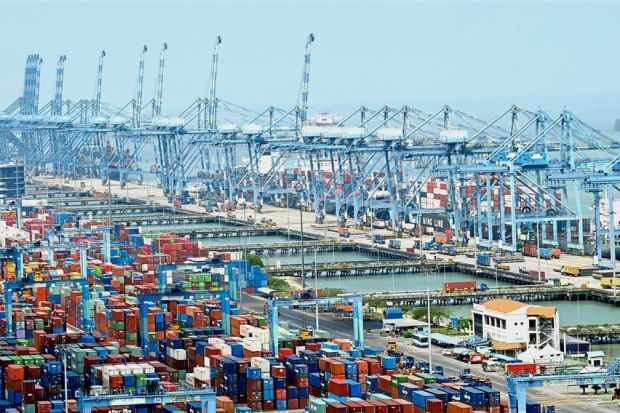Malaysia: Research outfit revises GDP projection 5% up
KUALA LUMPUR: Malaysia’s economic outlook has improved. But the Socio-economic Research Centre (SERC) says it remains cautiously optimistic on the country’s growth prospects amid the current unpredictable global economic, financial and political landscape.
The independent research institution yesterday raised its 2017 gross domestic product (GDP) growth projection to 5% from the initial estimate of 4.6% on the back of higher-than-expected exports and economic growth in the first quarter of the year.
It said the faster pace of economic growth this year, compared with the 4.2% achieved in 2016, would be driven by sturdy domestic demand, especially in private consumption and investment, and strengthening exports.
SERC’s new forecast is more bullish than the official 2017 GDP growth forecast of 4.3%-4.8% by Bank Negara.
Even so, SERC executive director Lee Heng Guie said one should not be overly confident or complacent, as there were still risks to growth, stemming primarily from the global front in the form of rising protectionism, geopolitical developments and commodity price volatility as well as reignition of financial market volatility and rising debt levels in the global markets, among others.
Malaysia needed to remain focused on fiscal consolidation to reduce its deficit and debt levels so that it would have the fiscal space to manage a potential downturn in economy, Lee told reporters at SERC’s quarterly economy tracker briefing.
In addition, he noted, the monetary policy must be well calibrated to support growth and anchor inflation expectations, while allowing space for further easing should the need arose.
“The challenge remains for local policymakers to sustain the country’s growth momentum and preserve its economic resilience,” Lee said.
“While we reckon that macroeconomic fundamentals should continue to support growth, the economic and financial management policies should focus on staying on the path of consolidation to build fiscal space and contain debt and carefully calibrate monetary policy to anchor growth amid financial volatility,” he said.
In addition, Lee said there should be continued vigilance on financial risks in the domestic market through macro-prudential measures.
For instance, he pointed out that the relatively high household debt, which stood at 88.4% of GDP, remained a key vulnerability, while the risk of a sharp decline in house prices should be carefully monitored.
Lee also said the government would need to remain focused on enhancing competitiveness, productivity and innovation in the economy to further uplift the country’s growth potential.
SERC said it expected Malaysia’s GDP growth to slow moderately to 4.9% in 2018. This compared with its earlier 2018 GDP growth forecast of 4.6%.
Lee said he did not expect any change to the country’s interest rates until next year.
“We expect Bank Negara to maintain the overnight policy rate at 3% this year.
“Nevertheless, we think the central bank should prepare the groundwork for a gradual rise in interest rates in 2018 if the economy continues to strengthen,” he added.
He explained that as the current inflation was largely cost-induced and there was no developing signs of demand price pressure, Bank Negara was unlikely to act soon to tame inflationary expectations.
Lee said inflation in Malaysia would likely moderate in the second half of this year, with the growth in consumer price index (CPI) expected to ease to 3%-3.5% from 4%-4.2% in the first half of 2017.
Overall, SERC projected the country’s inflation to average at around 3.5% to 4% this year.
Source: http://www.thestar.com.my/business/business-news/2017/07/06/research-outfit-revises-gdp-projection-5-up/#jw82JhweHF0MdK0Z.99


 Thailand
Thailand




